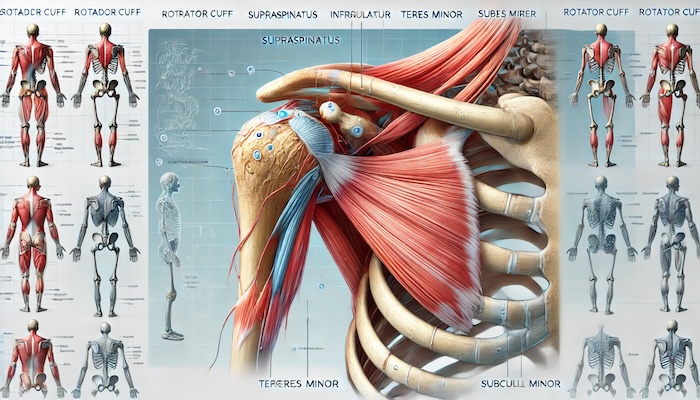
Rotator cuff injuries are a common source of shoulder pain, significantly impacting daily activities and overall quality of life. These injuries often occur in individuals who perform repetitive shoulder movements, whether from sports, physical labor, or aging. At Precision Pain Care and Rehabilitation, Interventional Pain Management offers effective, minimally invasive solutions to help patients recover and regain mobility.
What Is the Rotator Cuff?
The rotator cuff is a group of four muscles and tendons that stabilize the shoulder joint and allow arm movement. Injuries range from mild inflammation (tendinitis) to partial or complete tears. Common symptoms include:
- Pain when lifting or rotating the arm.
- Weakness in the shoulder.
- Difficulty sleeping on the affected side.
Causes of Rotator Cuff Injuries
- Overuse or Repetitive Motion: Painting, tennis, or swimming can strain the rotator cuff over time.
- Trauma: Sudden injuries, such as falling on an outstretched arm, can cause acute tears.
- Degeneration: Aging leads to wear and tear, making older adults more susceptible to injuries.
Diagnosis and Evaluation
Accurate diagnosis is critical for effective treatment. Common diagnostic tools include:
- Physical Exams: Assessing range of motion and strength.
- Imaging Studies: X-rays, ultrasound, or MRI scans provide detailed insights into the injury.
Interventional Pain Management for Rotator Cuff Injuries
At Precision Pain Care and Rehabilitation, Interventional Pain Management techniques are tailored to reduce pain, improve function, and promote healing. Options include:
- Corticosteroid Injections: These reduce inflammation and alleviate pain, especially in cases of tendinitis.
- Platelet-rich plasma (PRP) Therapy: This cutting-edge treatment uses the body’s healing factors to repair damaged tissues.
- Nerve Blocks: These targeted injections can relieve severe pain temporarily and facilitate physical therapy.
Comprehensive Treatment Plans
Interventional techniques are often part of a multi-faceted approach, including:
- Physical Therapy: Strengthening and stretching exercises restore mobility and reduce recurrence risks.
- Lifestyle Modifications: Adjusting activities and improving ergonomics to prevent further strain.
- Surgical Referral: For severe tears unresponsive to conservative treatments, surgery might be recommended.
Preventing Rotator Cuff Injuries
Prevention is key to maintaining shoulder health. Consider these tips:
- Warm Up Properly: Engage in dynamic stretches before activities.
- Strengthen Shoulder Muscles: Incorporate exercises that target the rotator cuff.
- Avoid Overhead Strain: Modify movements that involve repetitive overhead motions.
Final Thoughts
Rotator cuff injuries can significantly impact your quality of life, but effective treatments are available. Interventional Pain Management offers a path to recovery, minimizing downtime and discomfort. Seek expert care to address symptoms early and prevent long-term complications.
Precision Pain Care and Rehabilitation has two convenient locations in Richmond Hill – Queens, and New Hyde Park – Long Island. Call the Queens office at (718) 215-1888 or (516) 419-4480 for the Long Island office to arrange an appointment with our Interventional Pain Management Specialists, Dr. Jeffrey Chacko or Dr. Sonny Ahluwalia.















